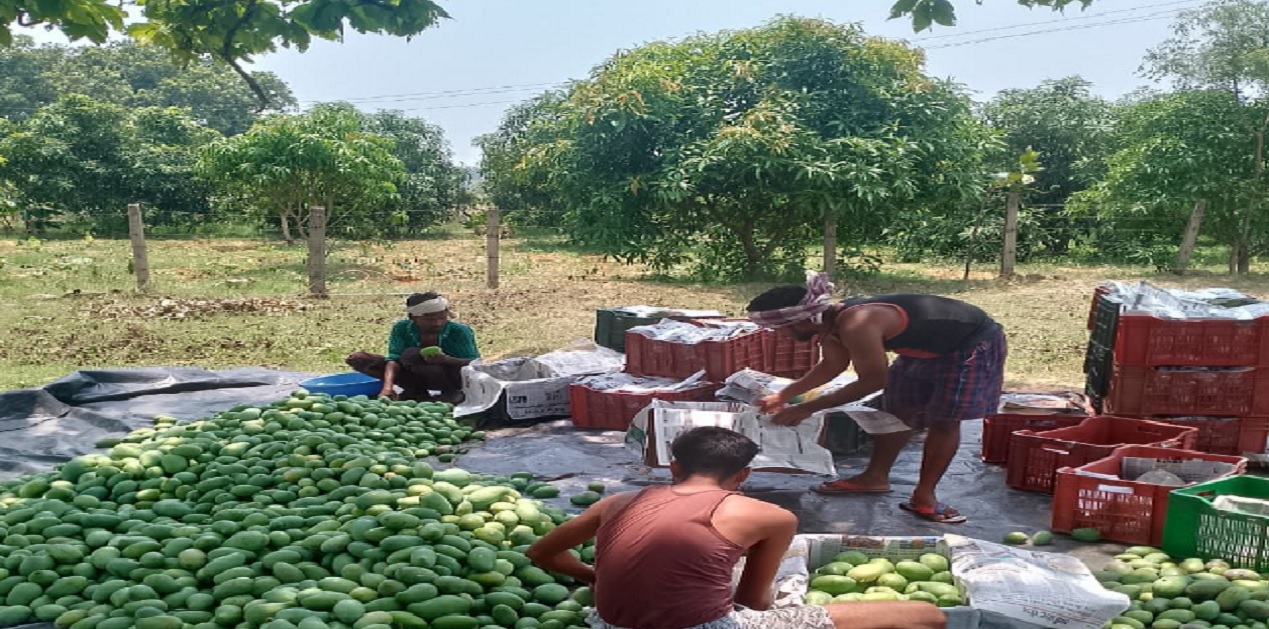In Odisha, the rural landscape is dotted with examples of individual excellence in the agri- development space. However, when it comes to collective efforts at economic transformation, the success has not been very encouraging. Many of the collective ventures have failed on account of lack of mentorship support beyond a stipulated ‘project period’. The key therefore, is to create capacity and necessary skill sets in the local community for the success and long-term sustainability of the collective ventures. The objective of Livelihood Alternatives is to inhabit this space and engage in:
- Creating community platforms for agrarian communities that will enable backward and forward linkages
- Working with startups to enable technology - transfer and dissemination of innovations to provide necessary scale
- Getting academia and industry to collaborate on various livelihood projects
Its vision is to reach out to 1 lakh farmers in Odisha by 2025, making a difference to their life and livelihood by following the principles of 6Cs- Collectivization, collaboration, convergence, capacity building, commercial-connect and community-outreach. In this endeavour, LA is collaborating with host of organisations that includes academic organizations, marketing companies, fintechs, startups and incubators. Presently LA is working in 64 blocks / locations in the State.
To take its mission forward, LA has created a network of committed and experienced partners. In the government, they are connected to the National Agriculture Cooperative Marketing federation of India Limited (NAFED), National Cooperative Development Corporation (NCDC) and the National Bank for Agricultural and Rural Development. Their implementation partners are the Siddha Development Research and Consultancy (P) Ltd (SDRC) and the Incubator for Social Enterprises and Entrepreneurs for Development (ISEED) at the prestigious Institute for Rural Management IRMA. Among their industry partners are Dhanuka Agritech Limited, IG Drones Skyhawk, Sammunati and Pinbox Solutions. The Global Alliance for Sustainable Development is their international partner.
LA is engaged mainly in two kinds of initiatives. The first is the setting up and promotion of Farmer Producer Organisations (FPO). Currently, LA supports five such cooperatives namely, Maa Charchika Farmer Producers Company Limited, Baba Dhabaleshwar Green Vegetable Fed Producer company Limited, Barkote Fed Farmer Producer Company limited, Maa Sukhiabauti Farmer Producer Company Limited, Dangasil Farmers Producer Company Limited.
The second is the formation of various incubation centres in Banspal, Telkoi, Harchandanpur, Ghatagaon, Joda and Jhumpura blocks of Keonjhar district and Sukinda and Dhanagadi block of Jajpur. These incubation centres will provide the rural start-up enterprises with necessary guidance with respect to product innovation, technology support, common infrastructure facilities, capacity building and training and facilitate market and credit linkages. These Incubation centres will be based on the principle of “One Block One Product” approach providing a framework for value-chain development, alignment with support infrastructure and convergence with existing government schemes.
Livelihood Alternatives (LA) is the initiative of Sambit Tripathy, a former officer of the Indian Revenue Service. In an interview with the author, he explains some of the nuances of his seminal venture.
Q1. What motivated you to launch the Livelihood Alternatives?
Livelihood Alternatives was borne out of a desire to replicate successful models of collective empowerment. The interventions are in the nature of creating necessary capacity and skill sets in the rural communities so as to make them central characters of Indian economic landscape.
Q2. What have been the most significant challenges in your work? Is funding a major challenge?
A Major challenge has been to create a cadre of local managerial persons, who could play a critical role in organising farmers, bring in necessary managerial abilities to administer the community- commercial structures that are being created in the rural communities. Funds too are an issue, especially cash-flow in government projects. It is a constant fight between compliance and operations.
Q3. Could you highlight some of your successful initiatives?
Our significant success revolves around market-connect. For the past three years, we have succeeded in facilitating procurement of groundnuts from farmers at MSP through the price-stabilisation scheme of the Government of India. This has ensured that the farmers get not only an assured price but also an alternative channel to sale. Besides, we have succeeded in providing marketing linkage for mangoes and pineapples through Mother Dairy, Delhi.
Q4. You have such credible partners working with you today. How did you convince them to join you in this venture?
Convincing partners depends on the intentions and common interests. What differentiates LA’s intervention in the space is the increasing participation of academia in the whole conversation revolving around livelihood projects and community-connect. LA has been successful in providing a bridge between academia and the larger community. Our interventions started with farmers, and have now been extended to artisans, weavers, potters etc.
Q5. What is landscape of initiatives like yours in the rest of the country? Are you connected with them?
Many such initiatives are now coming up in the country. Yes, we do have regular interactions and also seek to find areas of convergence and collaboration with those doing similar work; for instance the IRMA-ISEED foundations and startups and the Socrates Foundation which is engaged in capacity building of managers, farmers and directors.
Q6. What in your view should be done to invigorate the rural landscape of a rising India?
What we need today is to address the issues of market-connect and bringing innovations to the doorstep of the rural communities. There are many startups for instance who are working in the rural value-chain. The challenge lies in their adoption and by implication, scaling up so as to create the necessary critical mass for a significant economic transformation.
(The paper is the author’s individual scholastic articulation. The author certifies that the article/paper is original in content, unpublished and it has not been submitted for publication/web upload elsewhere, and that the facts and figures quoted are duly referenced, as needed, and are believed to be correct). (The paper does not necessarily represent the organisational stance... More >>
Image Source: http://www.livelihoodalternatives.com/assets/media/gallery/1245225532_285754031_426599839286117_906543524212567697_n.jpg











Post new comment